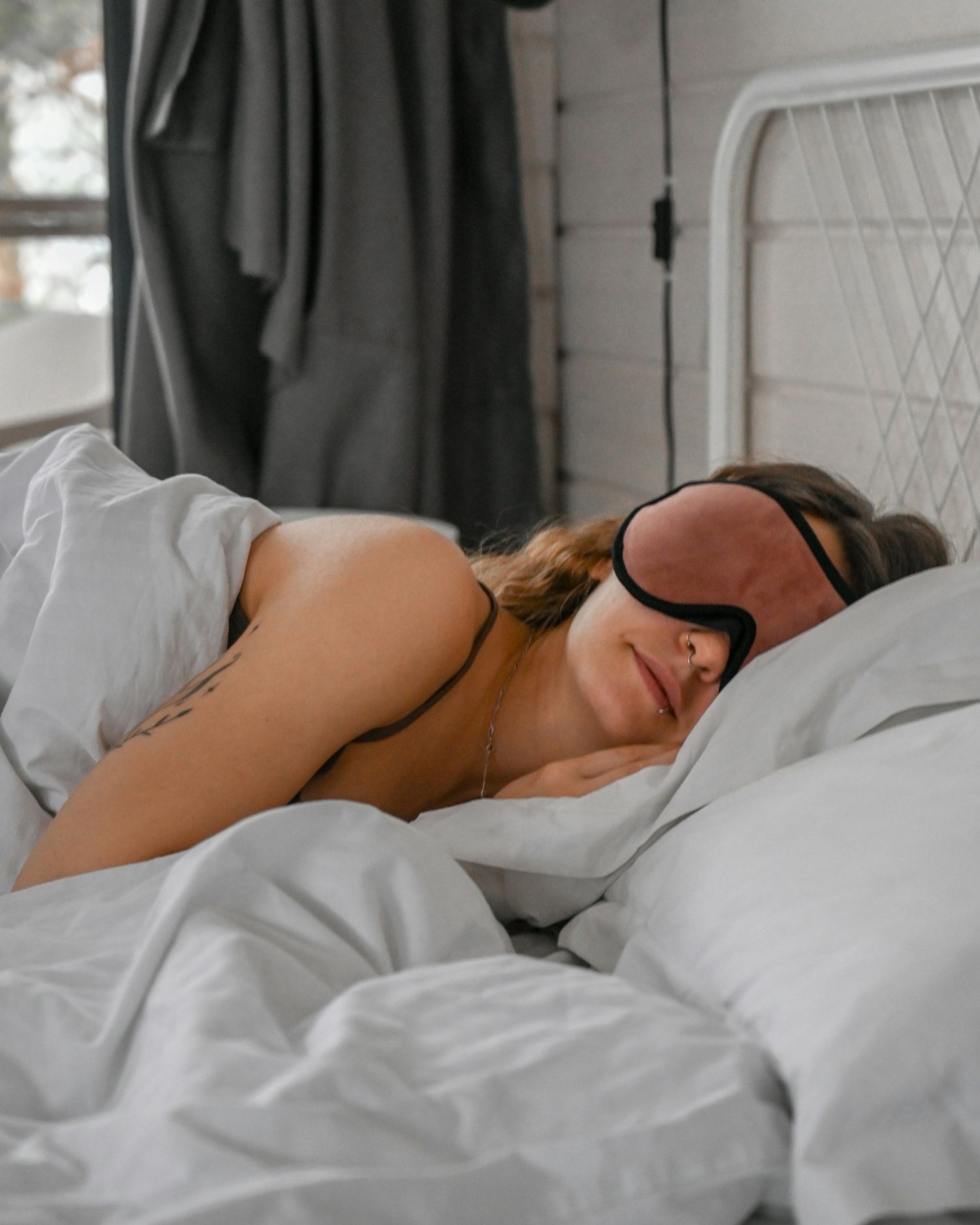5 Tips for Better Quality Sleep
Key Takeaways:
-
Quality matters as much as quantity
-
Create a sleep schedule
-
Try relaxation techniques
-
Avoid blue lights
-
Don’t eat just before bedtime
Table of Contents:
-
Introduction
-
The SATED questionnaire
-
5 Tips for Better Quality Sleep
-
Sign off
-
FAQs
We are advised to get restful sleep whenever possible, and told that the optimal is eight hours of deep sleep a night.
But how do you know if you are getting quality sleep?
To improve our quality of sleep, we first need determine how good (or poor) it currently is.
The SATED questionnaire, designed by sleep researchers, can help you to determine the quality of your sleep by measuring five key aspects:
-
Satisfaction
-
Alertness - are you awake the whole day without feeling sleepy
-
Timing - do you try to sleep between 2 and 4 am
-
Efficiency - do you spend 30 minutes or more trying to fall asleep
-
Duration - is your sleep between 6 and 8 hours?
You then score yourself for each aspect of your sleep:
0 - Never, it’s not happening
1 - Sometimes, once in a while
2 - always
If you score zero, you really have poor sleep quality, but if you score 10, congratulations, you have the best quality sleep!
Remember, 8 hours of sleep is not necessarily full rest. And a four-hour sleep can be full rest, so long as it is quality sleep.
So, how can you ensure you improve the quality of your sleep?
In this blog, I will take you through my five tips to help you sleep better.
-
Create the Right Environment
Make sure your room is not too bright. Wearing a sleep mask and/or earplugs can help you block out lights and sounds.
-
Make Sure You Have a Consistent Sleep Schedule
Sleep at the same time. For example, if you want to go to sleep at 10 o'clock, try as much as possible to sleep at 10 o’clock.
-
Try Relaxation Techniques Before You Go To Bed
Go to bed or start to prepare for sleep one to two hours before and do relaxing rituals such as reading, breathing exercises, meditation music or techniques, whatever helps you to fall asleep naturally.
-
Avoid Gadgets 1-2 Hours Before You Sleep
Turn off your phones! Put it away and place it in another room so your sleep won’t be disrupted.
-
Try to Eat Your Last Meal 4 Hours Before Bedtime.
If your regular bedtime is 10 PM, by 6 PM, you should be eating your dinner. And don’t eat food that’s too hard to digest, so it is easier on your digestive system.
I hope that these five tips will help you fall asleep better.
Sleep properly so you wake up refreshed and ready to go!
Dinah
FAQs:
What is the Best Time to Go To Sleep?
Those eight hours are meaningless if you don’t sleep at the right time.
Our body has a circadian rhythm, a natural body clock. Traditional Chinese medicine states that each organ has its own schedule, so the best time to sleep is before 11pm when the organs start the cleaning process.
The time you sleep can be a game-changer.
Does Blue Light Really Affect Sleep Quality?
Light ruins your sleep, and blue light is the main culprit. Even if you are already sleepy, you can’t fall asleep because the brain is active and stimulated. Blue light destroys your melatonin production, and melatonin is the hormone that induces sleep. Blue light comes from gadgets such as phones, tablets, laptops, TV, mostly anything that is electronic. The solution is to stop looking at your screen one hour before you go to bed. Use blue light filters or wear blue light-blocking glasses.
Also, switch to warm light. At night, your lightbulbs shouldn’t be too bright.
Is There Such a Thing As Too Much Sleep?
According to studies, it is not healthy to sleep excessively long hours because it can also lead to certain problems, such as:
-
Weight gain - increases the ratio of fat in your body
-
Psychological problems
You don’t need to stay in bed too long. Once you wake up, get up.








